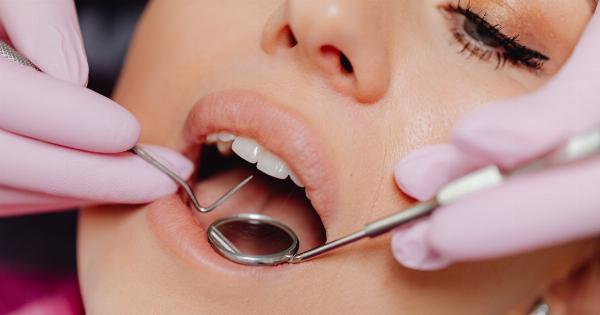Teething is a significant milestone in a baby’s development. It is a process in which their first teeth, also known as baby or milk teeth, gradually emerge through the gums.
Although teething is a normal part of a baby’s growth, it can cause discomfort and distress for both the baby and their parents. Understanding the normal symptoms of teething and knowing when to consult a doctor can help ease the teething troubles.
This article aims to provide insights into the typical signs of teething and guide parents in recognizing when professional medical advice is necessary.
What are the Common Signs of Teething?
Every baby is unique, and their teething experience may vary. However, there are some common symptoms that indicate a baby is teething:.
- Irritability and fussiness
- Excessive drooling
- Gnawing or biting on objects
- Chewing on fingers or fists
- Swollen or tender gums
When Do Teeth Typically Erupt?
The eruption of baby teeth occurs at different ages for different babies, but it usually begins around 6 months of age. The lower central incisors are often the first to emerge, followed by the upper central incisors.
The order of eruption continues with the lateral incisors, first molars, canines, and finally the second molars, typically completing by the age of 2 to 3 years. However, these timelines can vary for each child, and some babies may experience late teething.
How Can Teething be Managed?
While teething can be uncomfortable, there are several measures parents can take to alleviate their baby’s teething troubles:.
- Offering a clean, chilled teething ring or a cold washcloth for the baby to chew on can help numb the gums and provide relief.
- Gently massaging the baby’s gums with a clean finger can help reduce discomfort.
- Using over-the-counter teething gels or infant pain relievers, as recommended by a pediatrician, can help alleviate pain temporarily.
- Ensuring the baby stays well-hydrated by providing them with proper fluids.
- Distracting the baby with soothing activities or toys can help redirect their attention from the discomfort.
When to Consult a Doctor?
While teething is a natural process, there are certain symptoms that may indicate the need for medical attention. If any of the following symptoms occur, it is advisable to contact a doctor:.
- Fever over 101°F (38.3°C)
- Severe or prolonged diarrhea
- Refusal to eat or drink
- Excessive crying or irritability that does not respond to usual comfort measures
- Visible swelling or redness around the gums
- Prolonged rash or other unusual skin reactions
- Persistent ear rubbing or pulling
- Unexplained changes in sleeping patterns
Managing Discomfort: Natural Remedies
Some natural remedies can also help provide relief during the teething process:.
- Using a clean, chilled cucumber or carrot stick for the baby to gnaw on can help reduce gum inflammation.
- Applying a cold, damp cloth to the baby’s cheeks can help numb the gums.
- Offering cold, non-acidic foods, such as yogurts or purees, can help soothe the baby’s gums.
- Using amber teething necklaces, though controversial, is believed by some parents to provide relief.
- Using herbal remedies, such as chamomile tea or clove oil, after consulting with a healthcare professional.
Tips for Comforting a Teething Baby
When a baby is experiencing teething troubles, parents can try the following to provide comfort:.
- Cuddling and soothing the baby in a calm environment
- Providing extra love and attention
- Using gentle rocking or carrying motions
- Singing or playing soft music to distract the baby
- Offering safe, age-appropriate toys for chewing or biting
Conclusion
Teething is a natural and necessary process, but it can be a challenging time for both babies and parents. Recognizing and understanding the normal symptoms of teething can help parents navigate this phase with greater ease.
While most teething discomfort can be managed at home, it is important to be vigilant for any signs that may indicate a need for medical attention. By providing appropriate care and seeking professional advice when necessary, parents can help their babies cope with teething troubles and ensure their little ones have healthy smiles.































